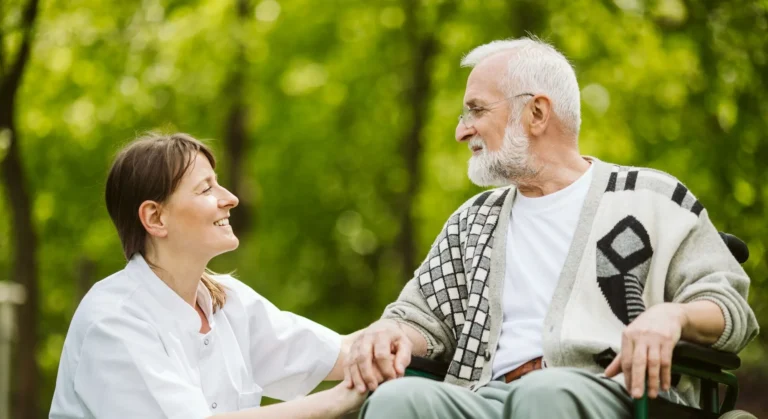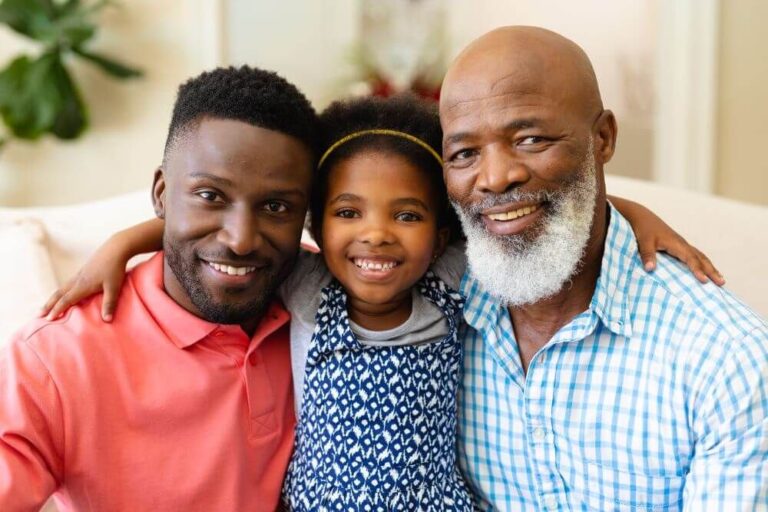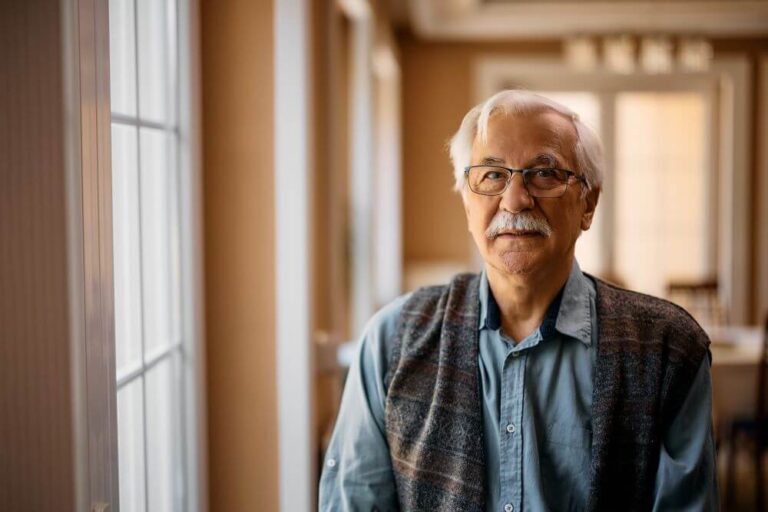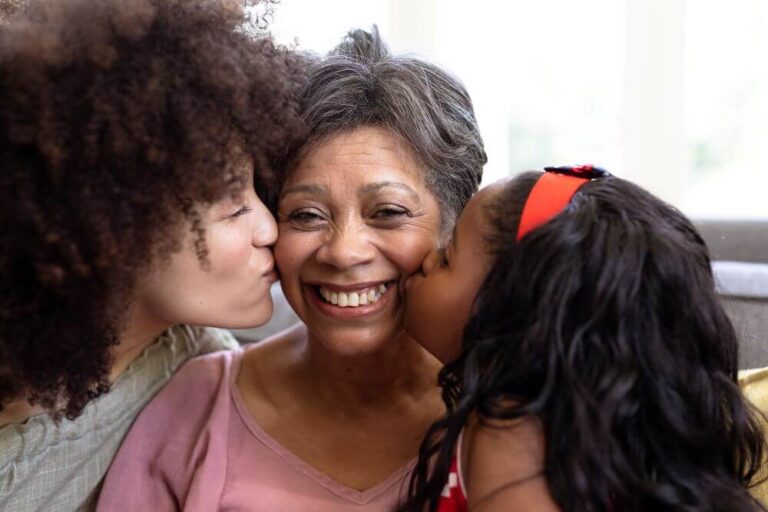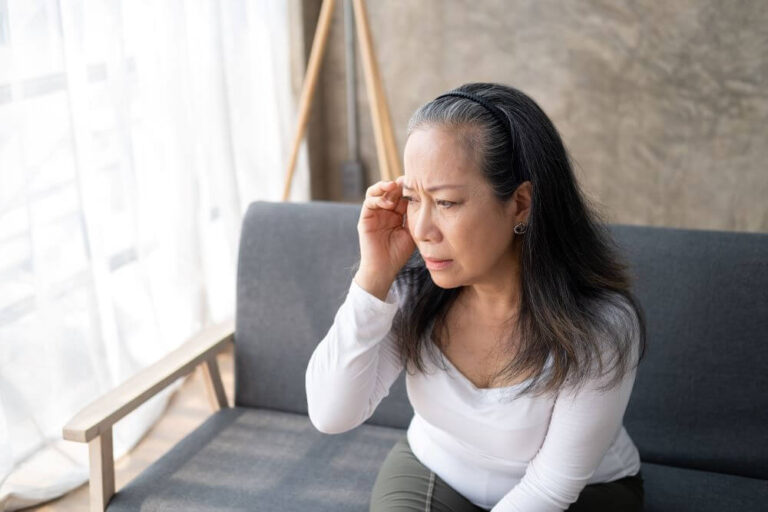Have you ever wondered why people wear a teal and blue ribbon in September? These harmonious colors represent suicide prevention month, a time dedicated to raising awareness and promoting education for suicide prevention. Too often, we associate suicide only with younger people. However, suicide attempts by older adults are much more likely to result in death, according to the Suicide Prevention Resource Center.
The aging population is often overlooked, deemed individuals in the second half of their lives, and unwanted outsiders in society. But the truth is that seniors have spent their lives contributing to our communities, and it’s time we return the favor and give them the care, security, and respect they deserve. That’s why this September, we honor Suicide Prevention Month by addressing the tragic epidemic of suicide among senior citizens.
Key Risk Factors That Make Seniors Vulnerable To Suicide
Seniors face unique challenges that make them more prone to suicide and feelings of despair compared to other age demographics. Key risk factors include:
Include:
- Diminishing ability to perform basic activities of daily living – the loss of independence is a harsh reality for many elderly individuals, leading to feelings of hopelessness.
- Alzheimer’s, dementia, and cognitive decline – memory loss can be a heartbreaking experience for seniors, often leading to suicidal feelings and thoughts.
- Social isolation – as seniors age into their 80s and 90s, they may lose the ability to drive, their friends pass away, and their children move away, leaving them lonely and without a robust social network.
- Physical decline – the link between limited mobility and depression in older people is well-documented. Frail bones, increased risk of falls, and the gradual weakening of the body’s systems can severely restrict a senior’s ability to move freely and independently, resulting in depression and hopelessness.
Recognizing The Warning Signs Of Suicidal Behavior In Older Adults
It’s crucial to be aware that the signs of suicidal thoughts can often be well-hidden. Individuals contemplating suicide may go to great lengths to conceal their inner turmoil, making it challenging for loved ones to recognize the warning signs. Suicidal warning signs include:
- Social isolation
- Mood swings
- Aloofness
- Cognitive decline
- Sleeping too much or too little
- Substance abuse
- Giving away important personal items
- Acting reckless
- Fragility, falling, emergency room visits
Encouraging Open Dialogue And Reducing the Stigma Around Elderly Suicide
One of the biggest challenges facing mental health among seniors is the false notion that they are not as important as younger people. There are countless mental health resources for our beloved youth, yet there is a glaring void for vulnerable seniors struggling with depression, hopelessness, anxiety, and mental health decline. Elderly suicide is a growing public health crisis that demands our attention and compassion. You may be wondering how you can help. Below are impactful things you can do to provide support to an elderly loved one struggling with depression and hopelessness:
- Encourage open dialogue by reaching out and offering support. You must create a safe and comfortable environment for the senior to open up.
- Connect your elderly loved one with helpful resources such as a therapist, support group, priest, or pasture.
- Encourage social activities such as meet-up groups, senior centers, adult day care, etc. Offer to drive your elderly loved one if they have given up the keys to the car.
Taking Action: What Should You Do If You Suspect An Elderly Loved One Is Suicidal
If you suspect someone is suicidal, it’s crucial to take immediate action. Step one is contact the National Suicide Prevention Lifeline at 1-800-273-8255. This confidential service provides 24/7 free and professional support to those in distress.
Do not hesitate to call 911 if you believe the person is in immediate danger. Emergency responders are trained to handle these sensitive situations and can assist. Remember, you could be saving the life of your elderly loved one.
Most importantly, under no circumstances should you leave the person alone if you believe they are suicidal. Stay with them, listen without judgment, and encourage them to seek help. Your presence and support can make all the difference.
Conclusion
It’s our duty as a society to ensure our aging loved ones are protected, whether that means strengthening elder abuse laws, providing resources to help seniors live independently, or creating education around mental illness. We hope the above article includes helpful information on the signs, risk factors, and preventative measures of suicide among the elderly. Together, we can work to prevent suicide and provide the care and resources those struggling desperately need.
If you or an elderly loved one requires extra assistance staying independent and safe, please contact At Home Care of Louisiana for a free home care assessment. Our team of trained caregivers provides companion, personal, and 24-hour care in the comfort of your home.




